Show solidarity to women and girls fighting back against the climate crisis
Climate Justice Appeal
Pull a thread…
…and you’ll see the climate crisis disproportionately affecting women and girls.
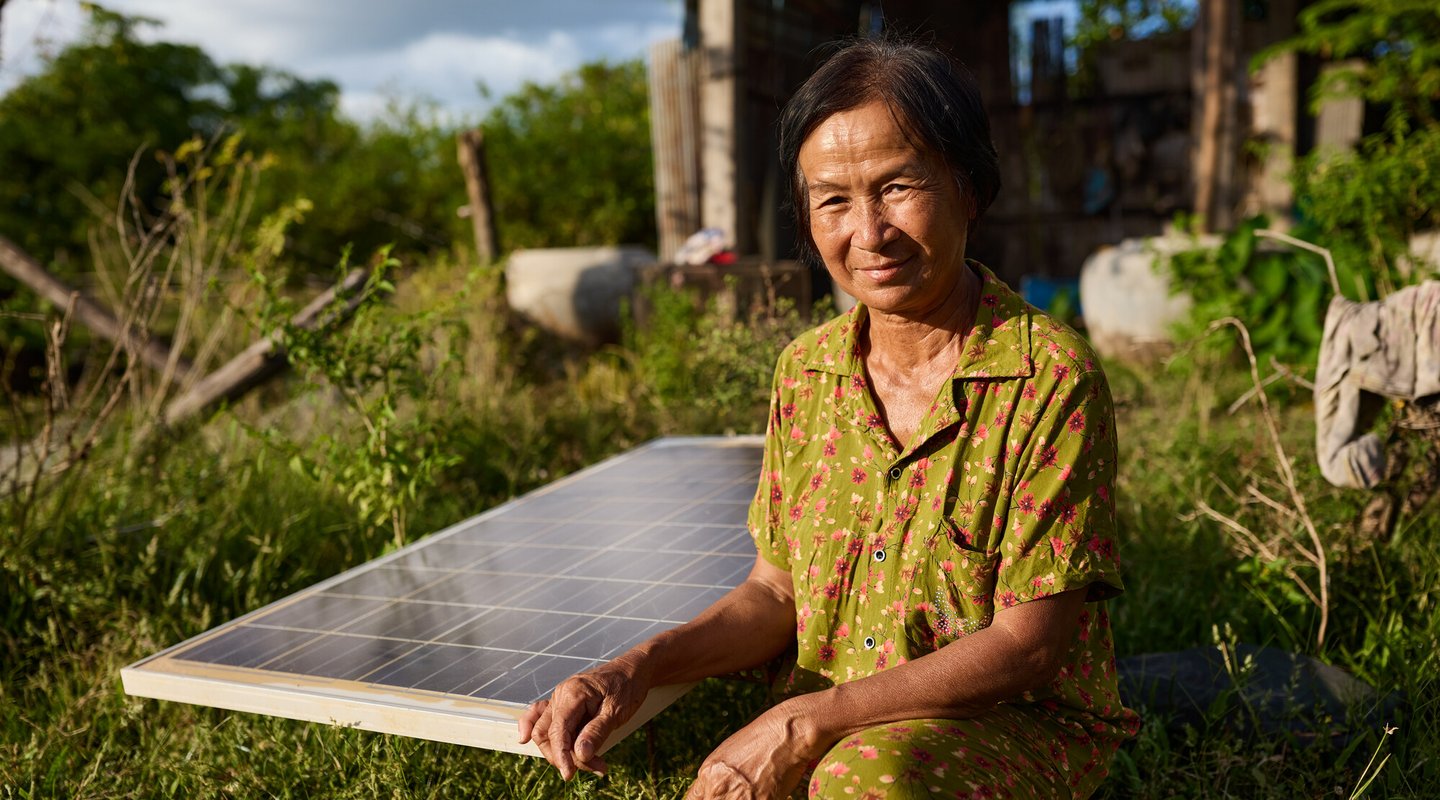
Vantha with the solar panels which help her power her greenhouse. Photo: Patrick Moran/ Oxfam
Our electricity power is not enough. Last rainy season, there was not a lot of rain and not enough vegetables planted due to lack of power supply.”
Vantha, Cambodia
Last rainy season there was a lot of rain and not enough vegetables planted due to lack of power supply. But when we got the greenhouse, it became much easier. Now I grow rice and vegetables. The income we make from vegetables is good, I will have a good life.”
Vantha, Cambodia
Vantha works in her greenhouse in Sambo District, Cambodia. Photo: Patrick Moran/ Oxfam
The income we make from vegetables in this greenhouse is good.”
Vantha, Cambodia
Siphon is making her voice heard
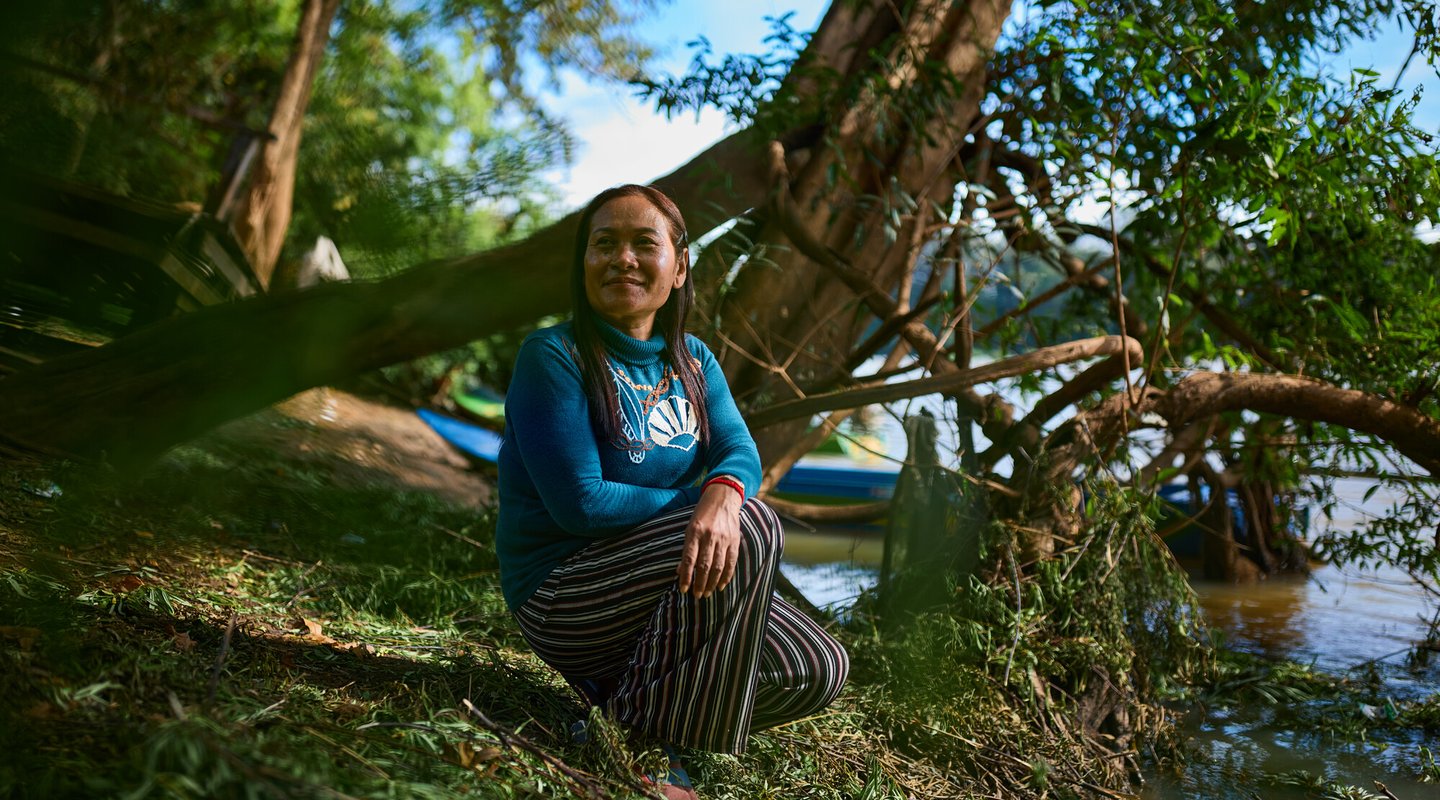
Siphon is a community activist and part of the local fisheries network. Photo: Patrick Moran/ Oxfam
We saw that the company was throwing waste into the lake, and asked them ‘why do you throw the waste in this lake?’ [We said] ‘Now you have to stop. Because lake is a conservation zone’ [We] made an agreement for the company to stop dumping.”
Siphon, Cambodia
Next time, they set up a pumping machine. And we forbade them to pump water. We told them to take away the pumping machine made an agreement that stated that the company is not allow to pump water, throw the waste into the lake, and fill up the soil around the lake.”
Siphon, Cambodia
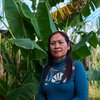
“In the past, they didn’t value women’s voices but now they do. We conserve the fish for our next generation. Stop all illegal fishing activities. It will be detrimental to the fish. We have to work together in term of conservation, because it will provide the long-term benefits for next generations.”
Siphon, Cambodia
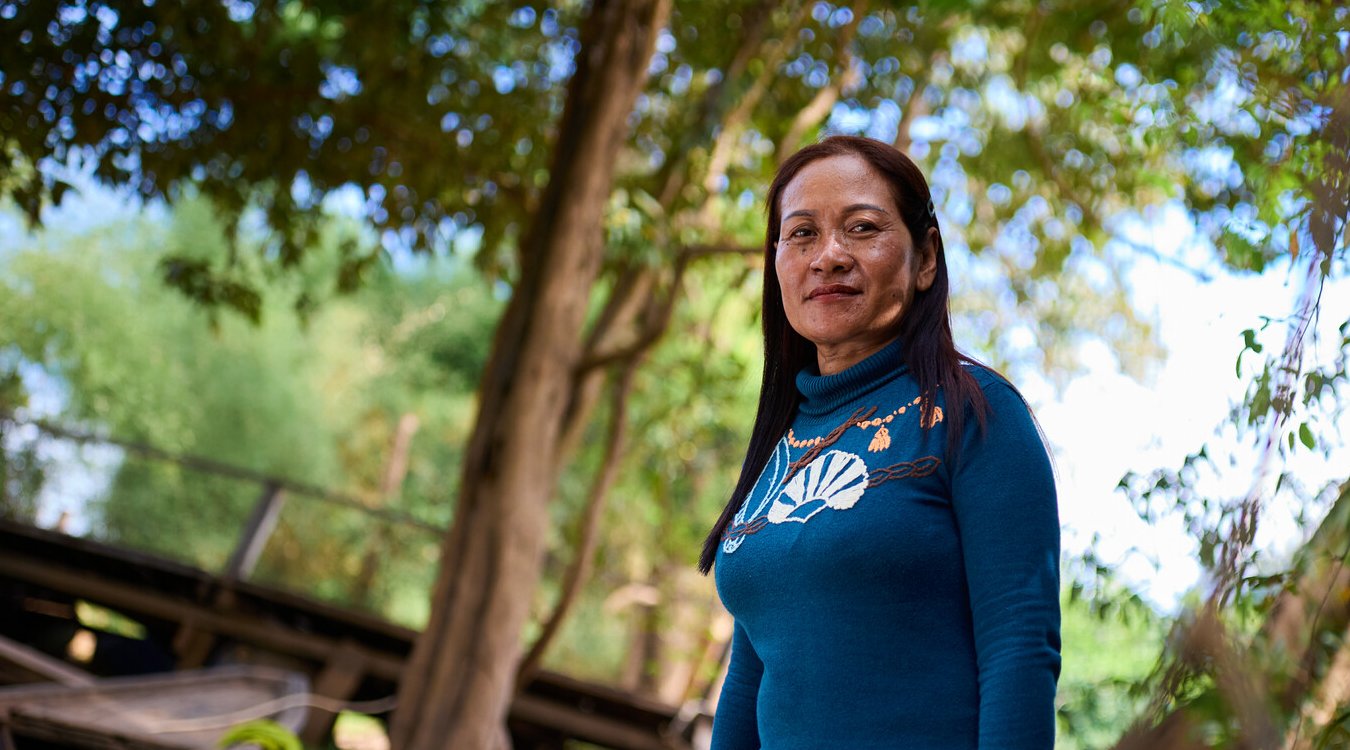
Siphon is a community activist and part of the local fisheries network. Photo: Patrick Moran/ Oxfam
Climate Justice Appeal
The whole village of Khaliqdar Jamali, Pakistan was displaced due to floods. They’ve set up a tent village nearby until their homes are rebuilt. Photo: Ingenious Captures/Oxfam
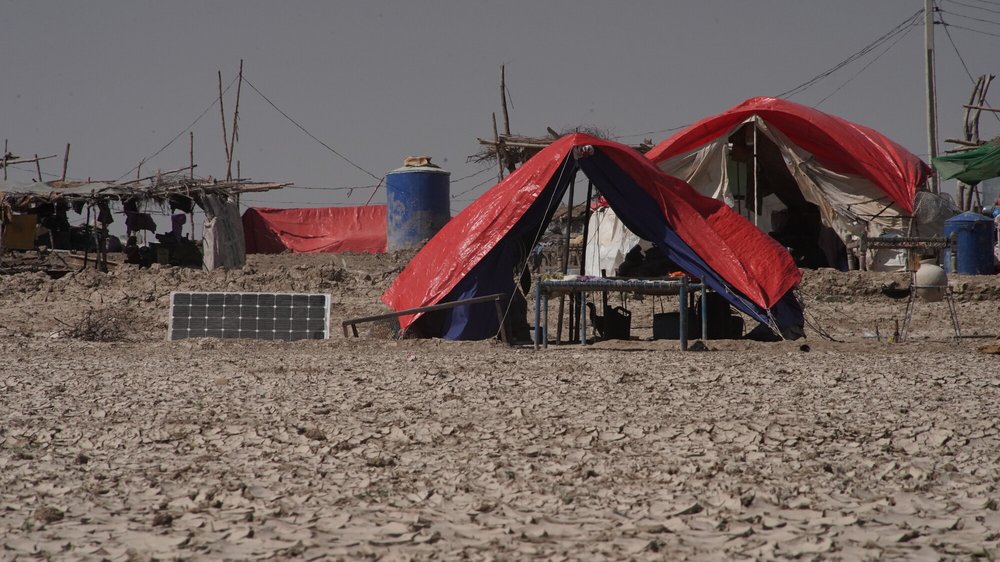
The whole village of Khaliqdar Jamali, Pakistan was displaced due to floods. They’ve set up a tent village nearby until their homes are rebuilt.
I was a Sari
Get your free Sari bag today
Keep unravelling the web - and follow the thread to get your own free, foldable and upcycled Sari bag, when you begin a monthly donation.